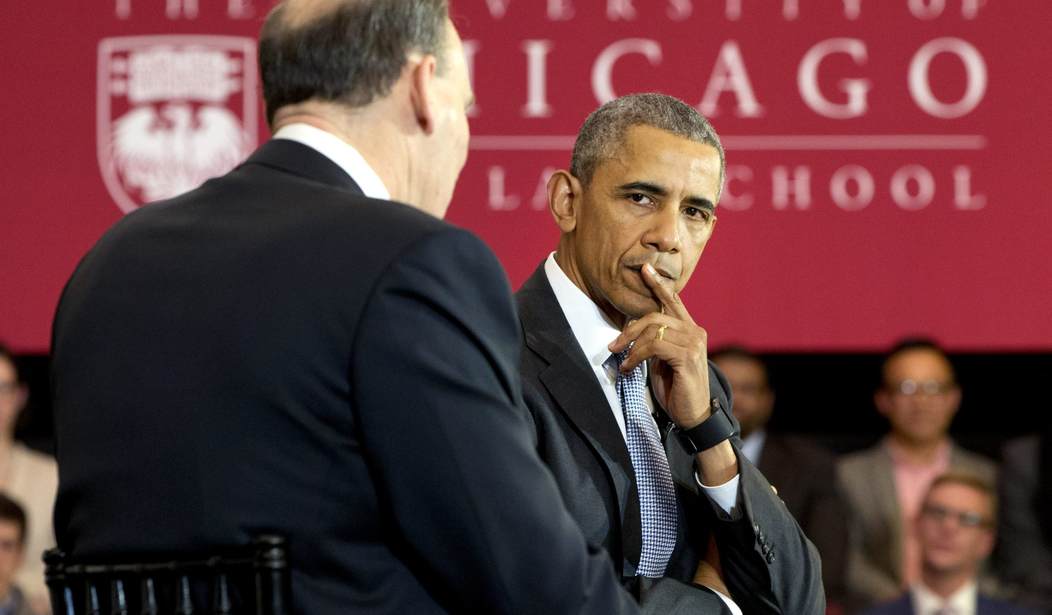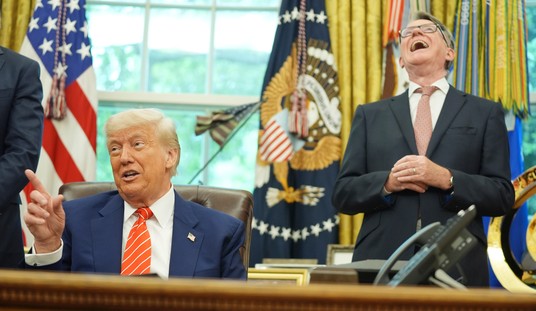At the school where he used to teach constitutional law, President Obama declared today that “in some ways the judicial process is a casualty of some broader trends in our democracy.”
Obama’s discussion at the University of Chicago was intended to needle a reticent Congress on holding confirmation hearings for his Supreme Court nominee, Chicago native Merrick Garland.
He was joined at the event by House Dems representing Illinois and Sen. Dick Durbin (D-Ill.).
The president said his decade teaching classes and seminars at the law school was “really fun.”
“It used to be that people read the Constitution and Article II powers fairly straightforwardly. It says the president shall make these nominations with the advise and consent of the Senate, and unless there was some sort of real problem with that judges character or qualifications, it was fairly routine at every level, both at the District Court level, the Appellate Court level and the Supreme Court, that the person would be confirmed in short order,” Obama said.
“What has been unique in this process has been the growing attitude inside of the Senate that every nomination, no matter how well qualified a judge is, is a subject of contention. In some cases, it’s simply because one party or the other wants to gum up the works… in other cases, the view has been that despite all the talk about people wanting objective judges who are just calling balls and strikes and don’t bring any views to bear, that there are litmus tests that are applied that prevent a judge from getting a fair vote, even though they’re qualified, because they don’t meet the particular views of the party that’s objecting.”
Obama claimed that because of congressional stalling of nominees “the courts will be just an extension of our legislatures and our elections and our politics.”
“It’s not just a matter of who’s occupying that ninth seat on the Supreme Court,” he said. “It has to do with how we as a democracy operate and the particular authority that a court has to bring in order for our democracy to work.”
The president added that as politics got more polarized that “fed into a culture in Congress in which basic comity and habits of courtesy and process and institutional respect for people that you didn’t agree with — those things began to break down.”
Obama also went into detail on how he picks Supreme Court justices: he looks for “intellectual integrity” and people who “bring a humanity to the job,” aka jurists “who understand how the world works so that they are not entirely blind to the history of racial discrimination or gender discrimination or how money operates in our world.”
A student asked the president what diversity Garland, a white male, would bring to the Supreme Court.
“You know, the way I’ve thought about diversity is not to think about any single seat as, oh, I’ve got to fill this slot with this demographic. But rather, if I’ve got a broad set of nominees to make, and this is true across the board, how do I make sure that I’m intentional throughout that process so that the talent of every American is — and every potential candidate gets a fair look,” Obama responded.
“If I stick to that, if I do that, if I make sure that I’m broadening the search, broadening the pool, looking at a bunch of folks, even if they’re not going through the conventional paths, that I’ll end up — the process will result in diversity. And that in fact is what’s happened.”
Obama touted his record on federal court appointments, noting “we’ve got more African-Americans on the circuit courts than we ever had before, we’ve got — I’ve appointed more African-American women to the federal courts than any other president before.”
“I’ve appointed more Latinos than any president before. I’ve appointed more Native Americans, more Asian-Americans, more LGBT judges than ever before,” he continued. “But at no point did I say, oh, you know what? You know, I need — I need a black lesbian, you know, from Skokie in that slot. That’s — can you find me one?”









Join the conversation as a VIP Member